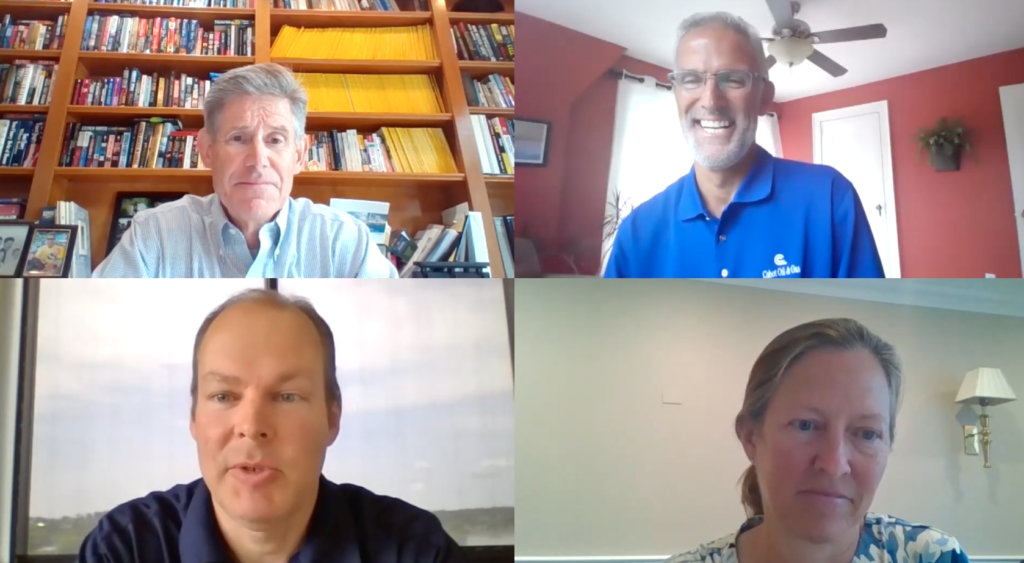Remembering and Reminding Others of How Far We’ve Come

In a virtual Think About Energy conference held on August 26, 2020, panelists who have witnessed first-hand the evolution of natural gas production in Pennsylvania since 2007 stressed the importance of continuously educating legislators and the public on the tremendous progress made since then. It’s important that we take stock of where we’ve been and apply it to the future.

“It seems like yesterday, but a lot has changed in the industry from a regulatory perspective and an environmental perspective,” said Patrick Henderson, current director of Regulatory Affairs for the Marcellus Shale Coalition (MSC). Those who were not part of the process of developing the state’s first official energy plan in 30 years “aren’t familiar with and weren’t responsible for some of the battles and the accomplishments that we can point to 12 years ago. They weren’t part of that conversation.”

Panelists credited industry leaders like Cabot Oil & Gas Corporation for working closely with state and federal agencies to achieve best management practices, advanced technologies, increased transparency, and environmental excellence. But newly elected legislators and even those more recently employed in Pennsylvania’s gas fields are often unaware of how much has been done. “We can all get complacent and think that everybody understands shale development,” Kathryn Klaber, former head of the MSC, concurred. “A lot of what we needed to do was cutting edge in areas that had a unique geology and population. The scale of what we had to cover was unique.”

Joseph Reinhart, co-chairman of the Energy and Natural Resources Group of Babst Calland Law Offices, provided details for us on the comprehensive environmental laws, starting with the Oil & Gas Act (Act 13) and followed by a half dozen monumental new pieces of regulatory legislation that provided new guidelines for those of us in the gas industry. Additionally, he noted current regular interaction with Pennsylvania DEP and DCNR, as well as multiple river commissions and a host of federal agencies. “There was not much interaction between these agencies back then,” Reinhart remarked. “Now, gas companies deal with all of them.”
“They were committed to doing it right for the people in their communities,” Henderson added. “Industry recognized and addressed a lot of the concerns of regulators to build confidence.”
Klaber made the point that operators coming to Pennsylvania from southwestern United States were no better prepared for the “vastly different landscape,” in terms of topography, politics and public perception of the gas industry, than the DEP was to deal with them. The formation of the MSC, she suggested, allowed people to begin working together across the entire supply chain and brought companies into the conversation that had never worked with natural gas.
More than 10 years later, energy prices are lower, emissions have been reduced well beyond requirements, thousands have family-sustaining jobs and billions of dollars have improved local economies. Yet, “staying ahead of the narrative,” as Henderson put it, remains a constant challenge. “We have to continuously educate them and reinforce the benefits.” Let’s keep this conversation rolling.
We hope you’ll join our next webinar on September 24, 2020 at 12 p.m. EST to talk about how the Marcellus Shale evolution has positively impacted our communities. Our panelists include
- Jeff Kotula – President of the Washington County Chamber of Commerce
- Jason Fink – President/CEO of the Williamsport/Lycoming Chamber of Commerce
- Alan Hall – Susquehanna County Commissioner
You can register for the event here!
